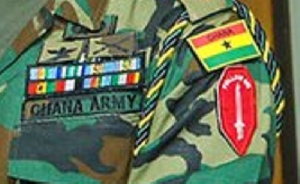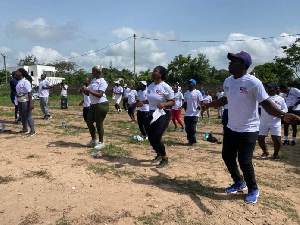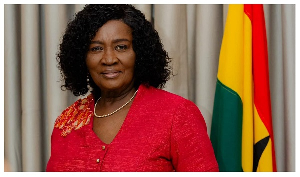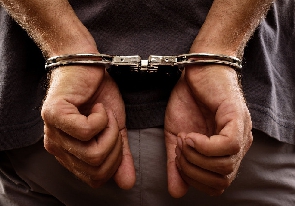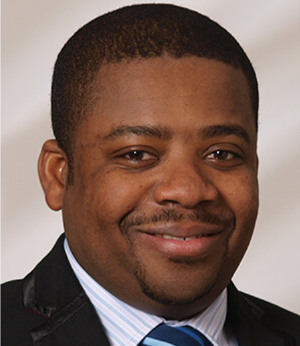The infrastructure base of every country is one of the greatest determinants of inwards foreign investment. As a result, Ghana?s quest to become a major economic force in the West African sub-region hinges not on the numerous slogans and dreams but on how solid our infrastructure base is. We can dream of becoming the gateway to West Africa, enticing some of the outsourcing market away from India etc., ultimately, we need to have the infrastructure to back up our claims.
Ghana has a very weak infrastructure base. The existing infrastructure are generally aged or outdated and in need of renewal. Much of Ghana?s infrastructure was built in the early 20th century to support the colonial administration and has not been updated much since. For instance, the railway network is deplorable and inadequate and exists in only 3 out of 10 regions having been built originally to support the movement of goods in the colonial era.
The most recent development of public services took place in the 1950s on attainment of independence. At the time, Dr. Kwame Nkrumah embarked on an ambitious programme, which gave us most of the things, which currently constitute the mainstay of our infrastructure. The Nkrumah legacy includes the Akosombo Dam, the Tema Motorway amongst many others. Since then, there have not been any major significant additions to our infrastructure stock. The easiest bit, which is pure and simple maintenance of these facilities, has also been handled woefully as they have been subject to years of neglect. There have been several comparisons made between Ghana and countries like Malaysia whom at the time of independence, we appeared to be at par with economically. In Malaysia?s case, the visionary leadership of President Mahathir Mohammed has catapulted the country to new heights. Leaders, I believe, have a moral obligation to leave their countries in a better state than they find it. One might argue that in Nkrumah?s time, Ghana was rich and had the resources to invest in infrastructure development. Yes, but as demonstrated by Malaysia, it does appear to me that the single most influential factor in all this is not just money but LEADERSHIP. Visionary leadership really is what in the first place sensitises us to what needs doing and enables us to develop the strategy to address the needs.
Whilst we as a people may accept whatever service we get, investors have a choice as to where to place their money. So whilst we have come to accept perennial power cuts as a normal part of daily life, investors will not take that. But you see, in reality, no one should put up with such situations. If there was no way out, then we could accept it as our fate but up to a point, it becomes more of poor management and bad service. Currently, we have just a little over 50 percent of our population who have access to potable water from the Ghana Water Company. This means that at any point in time, some areas do not have running water. I do not know the current situation in places like Adenta in Accra where taps experience periods with no running water more than the periods when water runs. So in our homes and offices, toilets are left unflushed because there is no water, which in itself presents a health hazard. In villages, school children travel long distances before and after school when they should be reading and doing their homework, in search of water ? and the water they find is disease infested. Dangerous.
Waiting for a new telephone connection can take several months if not years that is if ever you can get it. It is a serious situation that even in Accra, there are people who can afford a telephone line but who cannot own a telephone. The capacity of our telecommunication network is simply not large enough. We need more players and possibly an expansion of the capacity of the network.
Once cannot ignore the Kumasi-Accra road which remains a single carriage road ridden with potholes. All knows that this contributes largely to the high incidence of accidents. What is lacking is the leadership ? which will take the bull by the horns and take the decisive action to CHANGE this for the better.
Our health system is in a deplorable state? Hospitals ? few and under equipped leaving the poor with little access to good healthcare. Where healthcare is accessible, it is unaffordable. Hospitals are understaffed with healthcare professionals leaving in search of greener pastures.
I understand that we are going to build new stadia to host the African cup of nations. But I have not forgotten the last games we hosted, when we simply put plastic seats on the concrete seats in the Accra and Kumasi Stadia and that was it. I do not discount the possibility of this happening again. Our railway system? At the last count, the sector Minister was reported to have pleaded that it is taken from the divestiture list. But can the government ever find the funds to develop our railway network?
Talking about leadership, I believe that we should explore innovative ways of raising funds to develop our infrastructure. I know that generally, the private sector has been touted as serious partners in this wise. I see a new segment of the private sector, which I believe, can do a lot in this wise. I refer to Ghanaians in the Diaspora. I know for a fact that most people can never return to Ghana purely because we lack the infrastructure to back the new tastes and lifestyles that they have acquired. One cannot blame them because most off the things that they take for granted are seen as luxuries here. For instance, some of them, in the years that they have been away from Ghana have never seen a power cut or water shortage. Some of them have never washed anything with their hands- there is ALWAYS a washing machine to use. For some of them the only single carriage roads are the ones that lead to their driveway. For them, Ghana looks like a big village. Some of them make an effort to come for good only to return after a short while.
But I think that Ghanaians resident abroad have a great part to play in helping to improve our infrastructure. Let us form ourselves into investment clubs and join hands to rebuild our nation. Our infrastructure represents the walls and the foundations of our economic lift-off. Let us take our destiny into our own hands as we address the urgent national needs. Whilst no one person can do it alone, yet collectively we can make an impact. What the government needs to do is to simply create an enabling environment that removes the perennial constraints that prevent people from returning to live in Ghana and to lend a hand to the national development effort. The frustrations at the ports, frustrations at the ministries and other government departments should be removed through deliberate policy and action. For all those Ghanaians who live and work abroad, I say there is work to do. The walls of our society are broken. The state of our nation is in disrepair and a reproach. This is the time to build. Let?s arise and build. Together, we can do it. Lets not say or think that it cannot be done ?for people who say something cannot be done are usually interrupted by those doing it?.



